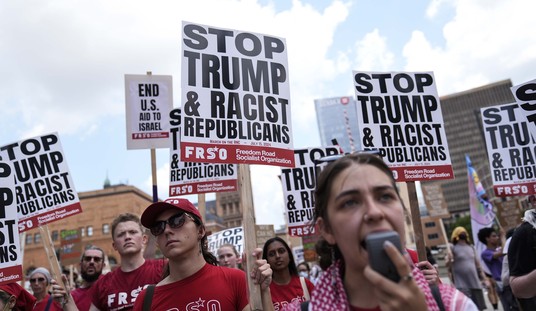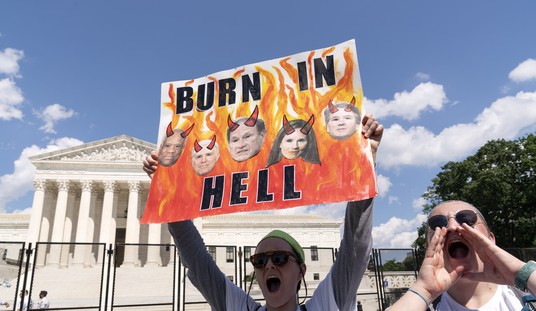I attended a campaign-related event for GOP gubernatorial candidate John Kasich on Tuesday. I came away both impressed and very concerned.
I was impressed with how well the event was organized, the quality of the discussion, and the passion of those who participated. I am deeply worried that the ghosts haunting these and other events will continue to work against my state’s economic success, even if (or especially if) a strong leader with an “R” by his name takes charge.
Kasich’s Mason, Ohio, business forum on the floor of a robotics facility had former Florida Governor Jeb Bush as a special guest. Six top executives of Ohio firms and facilities were also on the panel. The meeting’s goal was to help everyone in the room, including an audience of about 300 business and political leaders, understand what can and should be done to end Ohio’s economic doldrums.
Considering the results his state achieved, there may not be a better person to give a state’s would-be leader and key businesspeople meaningful guidance on how to revive their economies than Jeb Bush. Kasich let the audience know that while Bush presided over the Sunshine State from 1999 to 2007, it turned in the second-best performance in the country in jobs created and eighth-best in income growth. Even though Florida has about six percent of the nation’s population, during a five-year period early last decade it alone accounted for one-third of the nation’s job growth.
Later, one of the execs on the panel recited some of the awful elements of Ohio’s record. Since 2001, Ohio has lost 500,000 jobs; 170,000 of them have gone away in the past year. Forbes rates it 48th in economic growth prospects. The state ranks 46th (i.e., fifth-worst) in its personal bankruptcy rate, 49th in foreclosures, 42nd in unemployment, and 47th in business tax climate. Kasich accurately told the audience that to deal with an $850 million shortfall, current Governor Ted Strickland and Ohio’s legislature had “just raised taxes again and declared victory.” Oh, and they called it a “tax cut delay.” It seems that almost no one inside Columbus’s I-270 beltway gets it.
Bush pointed to these elements as part of his formula for success:
- “We demanded that personal income … had to grow faster than government spending.”
- “We crafted workers’ comp for significant savings.” Ohio is one of only a few states nutty enough not to let the private sector handle this critical area.
- He resisted the pleas of “lots of businesspeople [who] put their hands out.”
Bush had three other key observations that led to my concerns. First, he spoke of the importance of transparency and clarity, and how their presence is positive and self-fulfilling. He observed how important minimizing uncertainty is to a healthy and growing business climate. Finally, when asked how he dealt with energy and environmental issues during his eight years in office, he said, “Not well, unfortunately. We couldn’t get past the barriers.”
The ghosts who were haunting the room are fakers at transparency, seem to love uncertainty, and definitely relish those environmental barriers. Even when they weren’t in power, the ghosts’ green sympathizers “successfully” gummed up most attempts at new domestic energy development during the previous decade in Florida and the rest of the nation. Sadly, at least until recently, they have convinced all too many of the relatively disengaged that we can be the only major power in human history not to take advantage of the abundant natural resources we have and suffer no consequences for it.
As to Bush’s points about transparency and reducing uncertainty, the Wall Street Journal had this to say about the Beltway ghosts I am referring to in the wake of last week’s disappointing jobs report:
With so much policy uncertainty out of Washington … no one can be sure what they will pay for energy (rising oil prices, cap and trade) or new regulation (antitrust), how high their taxes will rise, and how much each new employee will cost (health care). In this kind of world, employers will wait as long as possible to add new workers.
Nancy Pelosi, Barack Obama, and Harry Reid were the ghosts whose presence I felt. That trio, assisted by their party, became the architects of what I have been calling the POR (Pelosi-Obama-Reid) economy since the summer of 2008. That is when they first introduced heavy doses of the very economic uncertainty both Bush and the Journal described. Their irresponsible rhetoric, their punitive policy promises, already profligate spending, and the prospect that they would likely win control of the presidency along with a tighter grip on Congress sent the economy on a downward path that only accelerated after they achieved the control they desired. While the economy is in the early stages of recovering, their legislative agenda, takeover mentality, and regulatory aggression still prevent most prudent employers from hiring.
Pelosi, Obama, and Reid did not control Congress or the presidency when Jeb Bush governed Florida, giving him the flexibility to do what he felt had to be done. But they have been in power during the past year. Look at the economic havoc they have wrought. Has there ever been a time since World War II when businesses have faced more uncertainty and seen less transparency out of Washington? I don’t think so. Give them just a little more time in control and you’ll see Washington giving independent, unfettered thinkers like Kasich and other current and future governors who share his passion for business and job development fits.
I’m told that John Kasich hasn’t yet embraced the idea of asserting states’ Tenth Amendment rights as certain current governors have. You might as well get with the program now, John, because those ghosts will be with you from your first day on the job, and you’ll have to keep them at bay for the state you love to truly turn around.








Join the conversation as a VIP Member